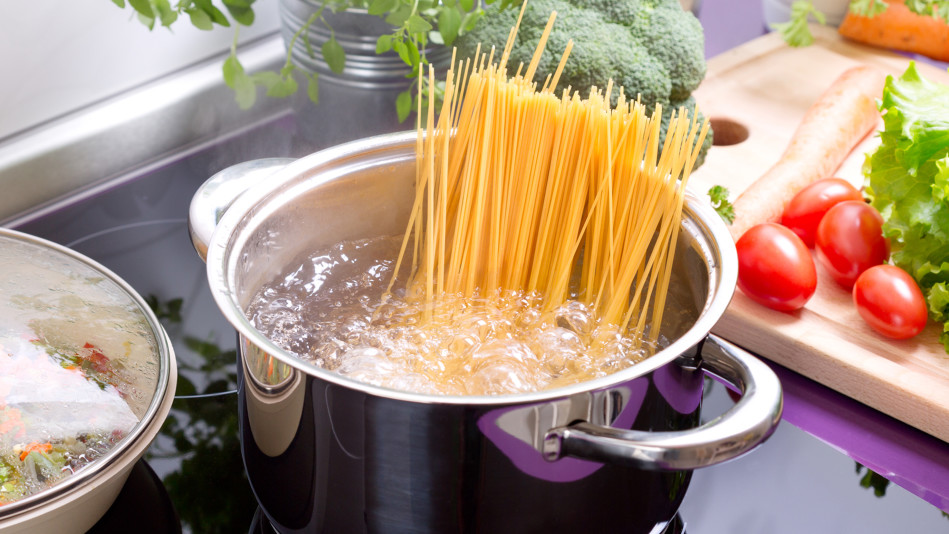

There’s a lot to unpack in that passage! But to my mind, the big takeaway is that the expression al dente must have already been in common usage in Naples at the time. The over-cooking of Macaroni makes it into a soft, pappy mess, which no Macaroni lover could touch. It should be tried with a fork or a piece may be taken out, and if it is crisp and yet tender, and if it breaks with its own weight, the Macaroni is done. As a rule Macaroni should be cooked in from twenty to thirty minutes. Neapolitans think it more digestible when it is underdone, so that it is rather crisp when bitten, or, to use their own term, when it is al dente. It is difficult to say how long Macaroni should be cooked. Roundell’s Practical Cookery Book With Many Family Recipes Hitherto Unpublished (Bickers 1898). But she also published what must have been a best-seller in its day, Mrs. The wife of an English sportsman and politician, she focused primarily on biography throughout her career. (In his own landmark 19th-century cookery book, La scienza in cucina e l’arte di mangiar bene, Pellegrino Artusi included what would become one of Italy’s canonical recipes for “maccheroni alla napolitana” but it doesn’t include a specific cooking time.)Īn early mention of the use of the expression al dente popped up surprisingly in a British cookbook from the late 19th century by a writer named Julia Anne Elizabeth Tollemache. Most concur that this is among the first mentions of undercooked al dente pasta. Many food historians point to Ippolito Cavalcanti’s 19th-century recipe for “vermicelli with tomato” as one of the earliest instances of al dente cooking times ( nota bene that Maestro Martino’s 15th-century cookbook mentions cooking time but he doesn’t indicate that the cooking time will deliver slightly undercooked pasta).Ĭavalcanti, whose homecooking appendix to his Italian cookbook Cucina teorico-pratica is believed to be the first to be written in Neapolitan dialect, writes: “scauda doje rotola de vermicielli, e vierdi vierdi li levarraje…” Translation: “boil two nests of vermicelli and strain them while still very green”. But I haven’t been able to find any usage until the late 20th century. There’s no doubt that it’s part of the culinary parlance today. No one really knows when al dente became a commonly used expression in Italy. To this day, pasta packaging in Italy simply reports the regular al dente cooking time or cottura ( e.g., cottura 9 minuti or cooking time: 9 minutes). I don’t have any hard data on when it began to happen, but I can remember the time before the time when mainstream pasta producers began to indicate regular and al dente cooking times on the front of the box. But here in America in recent decades, it became very fashionable to draw attention to the al dente cooking time for pasta. And because it’s such a commonplace expression, it’s by no means extraordinary. Only on rare occasions have I met Italians who like their pasta overcooked. As anyone familiar with home and restaurant cookery in Italy can tell you, Italians like their pasta slightly undercooked or “crisp” (see quote below).įor Italians, al dente is the baseline. The other night after Tracie made a perfectly cooked dish of fusilli al pomodoro for our daughters and me, the girls were curious about my comment that the pasta (or rather, the pastasciutta because these were dried pasta) had been strained al dente.Īlthough it’s often mistranslated or used a loanword in English (and especially American English), most Americans know it today to mean pasta that is slightly undercooked. Needless to say, they were cooked “al dente.” Above: paccheri with seafood in Lecce province. ^ "Glycemic Index and Diabetes: American Diabetes Association®".^ "Penne a la vodka Recipe Text | Rouxbe Cooking School".Italian Cuisine: A Cultural History - Alberto Capatti, Massimo Montanari - Google Books. ^ Capatti, Alberto Montanari, Massimo ().Encyclopedia of Contemporary Italian Culture - Google Books. ^ Moliterno, Gino (11 September 2002).Dictionary of Food: International Food and Cooking Terms from A to Z - Charles Sinclair - Google Books. ^ a b Sinclair, Charles (January 2009).^ "Al dente: definition of al dente in Oxford dictionary (American English) (US)".

Essentials of Classic Italian Cooking - Marcella Hazan - Google Books.


 0 kommentar(er)
0 kommentar(er)
